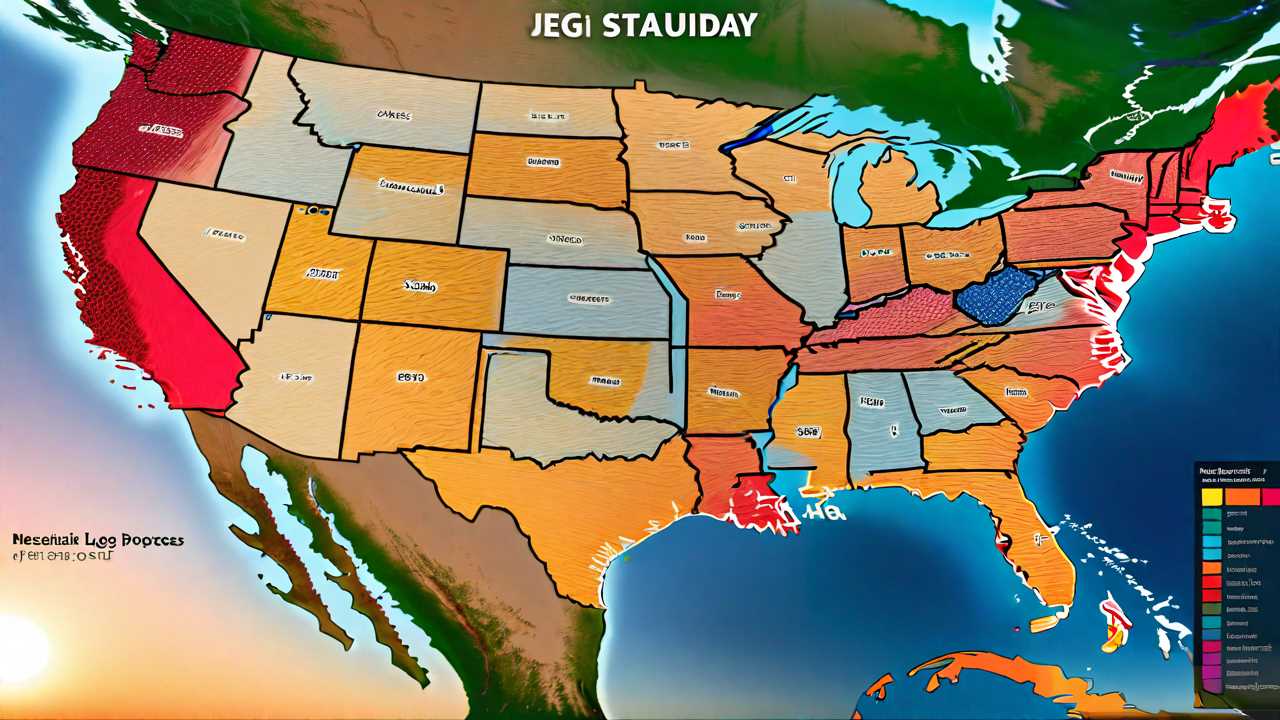Politics
How Does the Electoral College Work?

Have you ever wondered why the Electoral College plays such an important role in U.S. presidential elections? The way it operates may seem complex, but understanding its basics can illuminate how a candidate secures the presidency. By exploring how electors are allocated, the significance of swing states, and the overall impact of the Electoral College, you can gain a clearer picture of how this system shapes the outcome of the election. Let’s demystify the inner workings of the Electoral College and uncover its role in the democratic process.
Electoral College Basics
To understand the Electoral College basics, you need to comprehend its fundamental structure and purpose in the U.S. presidential election process. The Electoral College consists of 538 electors, with each state having a certain number based on its representation in Congress. The purpose of this system is to balance the influence of smaller and larger states in the election, ensuring a significant representation of the diverse interests across the nation.
During a presidential election, when you cast your vote for a candidate, you’re actually voting for a slate of electors chosen by that candidate’s party. These electors then meet in December to officially cast their votes for the President and Vice President. A candidate needs to secure at least 270 electoral votes to win the presidency.
Understanding the basics of the Electoral College is essential in grasping the intricacies of the U.S. presidential election process. It highlights the unique way in which the American electoral system operates, emphasizing the importance of state representation in determining the country’s leader.
Allocation of Electoral Votes
The allocation of electoral votes in the United States is determined by a state’s representation in Congress, with each state having a specific number of electors based on its total number of senators and representatives. This allocation method guarantees that each state has a voice in the presidential election process, with smaller states still having a significant impact due to the equal representation of senators and the proportional representation of representatives.
For example, California, being the most populous state, has 55 electoral votes, consisting of its 2 senators and 53 representatives. On the other hand, states with smaller populations like Wyoming have 3 electoral votes, representing its 2 senators and 1 representative. This system aims to balance the influence of more and less populous states in the election, emphasizing the importance of both individual votes and state representation.
Understanding the allocation of electoral votes provides insight into how the Electoral College functions, highlighting the intricate blend of state representation and population impact in the presidential election process.
Role of Swing States
Swing states play a pivotal role in determining the outcome of presidential elections in the United States. These are states where the electorate’s vote could swing either way, making them important battlegrounds for candidates. The significance of swing states lies in their ability to shift the balance of electoral votes towards one candidate or another, ultimately deciding the winner of the election.
States like Florida, Pennsylvania, and Ohio are often considered key swing states due to their history of fluctuating between supporting Democratic and Republican candidates.
Candidates often focus a significant portion of their campaign efforts and resources on swing states. They tailor their policies and messaging to appeal to the specific concerns and demographics of these states in an attempt to sway undecided voters. The outcome in swing states can be unpredictable, leading to intense campaigning and close races.
In recent elections, swing states have had a major impact on the final electoral college results, underscoring their crucial role in the American electoral process.
Electoral College Significance
Understanding the significance of the Electoral College is essential for grasping the intricacies of the American electoral system. The Electoral College was established by the Founding Fathers as a compromise between electing the President by a popular vote or by Congress. Its significance lies in the fact that it determines the outcome of presidential elections.
The Electoral College creates a balance of power between states, giving smaller states a more proportional say in the election process. This system also promotes a two-party system, as it’s challenging for third-party candidates to win electoral votes without substantial support.
Moreover, the Electoral College influences campaign strategies, as candidates must focus on winning states with a higher number of electoral votes to secure victory. This significance is highlighted during close elections, where winning key swing states can tilt the balance in favor of one candidate over the other.
Despite criticisms, the Electoral College remains a fundamental aspect of American democracy, shaping the way presidential elections are conducted and results are determined.
Frequently Asked Questions
How Are Electors Chosen for the Electoral College?
To select electors for the electoral college, each state determines its own method. Typically, political parties nominate electors at state party conventions or through a selection process. Electors are often party loyalists or individuals with political connections.
Can Electors Vote Against Their State’s Popular Vote?
Yes, electors can vote differently than their state’s popular vote. It’s known as a "faithless elector." This rare occurrence happens when an elector chooses not to follow the state’s vote outcome.
What Happens if No Candidate Receives a Majority of Electoral Votes?
If no candidate wins a majority of electoral votes, the election goes to the House of Representatives. Each state delegation gets one vote, and a candidate needs a majority of state votes to win.
Are There Any Limitations on Who Can Become an Elector?
In terms of who can become an elector, limitations exist. Potential electors cannot be members of Congress or hold an office of trust or profit under the United States. These restrictions aim to guarantee impartiality.
Can the Electoral College System Be Changed or Abolished?
Yes, the electoral college system can be changed or abolished through a constitutional amendment. This process involves a proposal by two-thirds of both houses of Congress or a national convention requested by two-thirds of state legislatures.

Hello there! I’m Jeremy Ramirez, your go-to guy for all things content marketing and social media at NewsScroller. Currently residing in the vibrant city of Omaha, NE, I’m living my dream of combining my passion for journalism with the dynamic world of digital media.
I’m a proud graduate of the University of Nebraska, where I honed my skills and earned a degree in journalism. My college days were filled with endless learning, coffee-fueled study sessions, and the excitement of discovering the power of storytelling.
Post-graduation, I found my calling at NewsScroller, where I currently lead a team of creative minds in shaping compelling content strategies. Every day is a new adventure here – crafting stories, analyzing trends, and engaging with our vibrant online community.
When I’m not immersed in the digital world, you’ll find me cherishing moments with my amazing wife and our two energetic boys. Our family is completed by Dagwood, our adorable Pug, who always brings smiles to our faces.
Traveling is my escape and inspiration. I love exploring new cultures, tasting local cuisines, and capturing memories through my lens. As a speaker at social media events, I enjoy sharing insights and learning from fellow enthusiasts.
Curious about content marketing strategies or the latest social media trends? Or maybe you want to exchange travel stories? Feel free to reach out. I’m always up for a chat and eager to connect with like-minded individuals. Let’s navigate the exciting world of digital media together!
Want to know more or say hi? Drop me a message anytime!

